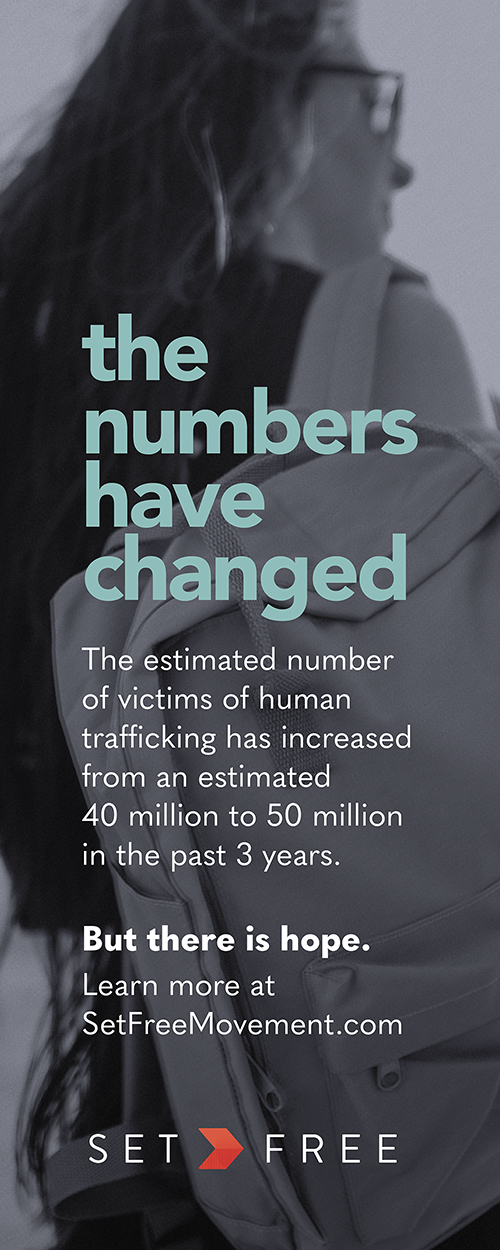Michael Tait visited my college dorm room.
(Some Light + Life readers may be wondering, “Michael who?” Other may be thinking, “Michael Tait, the singer from the groups dc Talk and Newsboys? Cool!” If you regularly follow faith-based news or social media, however, you may be cringing.)
Tait unexpectedly appeared at my Midwestern college at the height of dc Talk’s fame in the mid-1990s when a not-so-famous contemporary Christian music (CCM) band performed a campus concert. As an avid CCM fan, I wanted to attend the concert, but I regretfully was the “resident assistant on duty” and contractually bound to spend the evening alternating between neighboring men’s dormitories.
A friend was shocked to see Tait among the concert’s small crowd, and he knew I’d be disappointed to miss meeting one of my musical heroes. He persuaded Tait to come to my dorm room to meet me. However, they encountered an empty room because I was visiting other dorm floors. Although I missed my opportunity to meet Tait, my friend grabbed a camera for photographic proof.
I first became a fan of dc Talk as a suburban teen in the late 1980s and early ’90s with a growing love for an emerging art form known as rap music. I sensed a kindred spirit in dc Talk’s suburban rapper Toby McKeehan (now known as TobyMac and still performing CCM at age 60 although he now sings more than he raps). But I also loved the vocals of the group’s other members, Tait and Kevin Smith (now known as Kevin Max). As my taste evolved from cheesy ’80s pop rock and rap music to grungy ’90s alternative rock, dc Talk also changed styles — especially on their 1995 hit song and album “Jesus Freak” and its mostly rap-free 1998 follow-up, “Supernatural.”
Although Tait initially said in the 1991 “Rap, Rock & Soul” video that he was “bringing the soul to this party,” he defied stereotypes by committing to rock music when the dc Talk members went their separate ways in the early 2000s. He formed the band Tait and released two albums that didn’t receive the recognition I thought they deserved. In 2009, Tait unexpectedly became the lead singer of another favorite CCM group, the Newsboys, which had immigrated to the United States from Australia.
Resignation and Allegations
(Content warning: You may want to stop reading now if you avoid references to sexual abuse. Please be aware that linked news reports are more graphic in their descriptions.)
Tait’s Newsboys became silver screen stars in the “God’s Not Dead” movies, and they seemed to defy age and style barriers until this January when Tait announced “the monumental and heartfelt decision that it is time to step down from Newsboys.” He gave little reason other than that the decision came “amidst prayer and fasting.” The band continued with bass guitarist Adam Agee soon becoming the latest Newsboy to step up to the microphone.
Then came the headline “EXCLUSIVE: Former Newsboys Frontman Michael Tait Accused of Sexual Assault, Grooming, and Substance Abuse, Dating Back to 2004,” followed by Tait’s “My Confession” on Instagram that “reports of my reckless and destructive behavior, including drug and alcohol abuse and sexual activity are sadly, largely true. For some two decades I used and abused cocaine, consumed far too much alcohol, and, at times, touched men in an unwanted sensual way. I am ashamed of my life choices and actions, and make no excuses for them. I will simply call it what God calls it — sin. I don’t blame anyone or anything but myself…”
Some fans expressed their eagerness to forgive and even restore Tait to musical ministry. After all, as dc Talk sang, “If confession is the road to healing, forgiveness is the promised land.”
But the horrifying headlines kept coming: “‘He stole a piece of our souls’: Christian music star Michael Tait accused of sexual assault by three men,” “Woman Accuses Michael Tait of Drugging Her and Watching While She Was Raped; Says Newsboys Tour Manager Covered It Up,” “Michael Tait Accuser Claims Christian Singer Has ‘Many More’ Sexual Assault Victims: ‘The Goal Is to See Him Go to Prison,’” “Michael Tait’s 16 Years of ‘Cocaine Benders,’ Drugging, and DUI: ‘I Don’t Know a Single Person . . . in (CCM) That Doesn’t Know.’”
The response seemingly shifted with more people expressing sentiments such as these words from Skillet lead singer John Cooper: “I am very dissatisfied with the comments that I have seen from CCM that seem so heavily vested in the idea, which has some truth to it, of, ‘Hey, let he who is without sin cast the first stone.’ … My focus is those who have been victimized, allegedly abused, sexually assaulted by Michael Tait. … We need a full-throated condemnation of these acts.”
I agree with Cooper that the focus needs to be on abuse victims, whom I am lifting up in prayer. Still I can’t help but wonder what to do with the music that remains.
How can I listen to Tait’s singing without thinking of the terrible abuse allegations about him? How can I get past the seeming hypocrisy of lyrics such as “I don’t want it, want your sex for now … I don’t want it ’til we take the vows.” There seems to be tragic irony in the song “What If I Stumble?” that begins with this quote from author Brennan Manning: “The greatest single cause of atheism in the world today is Christians who acknowledge Jesus with their lips … and deny Him by their lifestyle. That is what an unbelieving world simply finds unbelievable.”
Listening to the Newsboys may initially seem less problematic because the band’s revolving membership means no current member was in the band when it released one of my favorite albums, “Not Ashamed.” (However, that album’s lead singer, John James, also left the band suddenly and later confessed to adultery and addiction.)
Should any music with Tait’s involvement be pulled from store shelves and Spotify? Should the Newsboys be edited out of the “God’s Not Dead” movies? Is removing all of Tait’s music from Christian radio fair to TobyMac, the primary songwriter for dc Talk, or the other members of the Newsboys? Should I be supporting the CCM industry if it turns out that managers or record label executives looked the other way while aware of abuse?
I don’t have easy answers to these questions. We don’t ban King David’s psalms because of his adulterous and murderous behavior, but he didn’t have the benefit of the indwelling Holy Spirit whom believers have today.
_
“Nobody’s perfect, except for the Lord, and even the best bound to fall.” – Keith Green
_
While I don’t have all the answers, here are a few thoughts about Christian music and the flawed people who record (and listen to) it:
- Don’t idolize Christian musicians (or anyone else).
“Dear children, keep yourselves from idols.” (1 John 5:21)
Don’t assume that incredible talent makes CCM singers morally superior to the people who sit next to us at church. As CCM pioneer Keith Green sang, “Nobody’s perfect, except for the Lord, and even the best bound to fall.”
My teen son prefers the classical sounds of John Williams over his dad’s rock and rap, but he loves one CCM song, Hawk Nelson’s “Diamonds,” which he encountered years ago at a vacation Bible school. He occasionally asks me if Hawk Nelson will be coming to our area in concert so he can hear “Diamonds” live. I sadly tell him that’s not likely to happen. The song’s singer, Jon Steingard, announced a few years ago that he no longer believes in God. (Steingard should not be confused with previous Hawk Nelson lead singer Jason Dunn who left the band and decided he “wanted nothing to do with God or Christianity,” but later testified, “My faith in God has been fully restored.”)
The late CCM singer Rich Mullins reportedly said, “It’s so funny being a Christian musician. It always scares me when people think so highly of Christian music. … I know a lot of us, and we don’t know jack about anything. Not that I don’t want you to buy our records and come to our concerts. I sure do. But you should come for entertainment. If you really want spiritual nourishment, you should go to church. … You should read the Scriptures.”
- Worship music isn’t the only acceptable form of Christian music.
As Mullins suggested, there are other resources for going deeper in faith, but entertainment has its place. We don’t need to address all of our songs to God. If you have a problem with love songs, then you might want to avoid a book in the Bible known as the Song of Solomon/Songs.
Some CCM is intended as “vertical” worship music directly praising God, but other CCM is “horizontal” and addresses life in this world. I’m a fan of the band Switchfoot whose lead singer, Jon Foreman, explained, “When I’m writing at my best, there’s a problem, mystery, something that I cannot comprehend, and the song is a vehicle to get to the other side. It could be my wife, children. The mystery of this transcendent God. The mystery of this nation we live in, the polarity, the divisiveness. You can call them contradictions. You can call them paradoxes. Those are the things that I’m generally drawn to. And the song becomes the vehicle to understand it and say things I might not say in a conversation.”
I know I’m still going to want music to keep me entertained and awake when I’m driving. I’d rather fill my brain with thought-provoking, uplifting, biblically informed lyrics than the most popular streaming songs, which regularly include an E label for violent or sexually explicit content. While I have misgivings about the state of modern CCM, I’m still excited to see singer Forrest Frank on Billboard’s Hot 100 chart. As NPR recently noted, “Christian music is experiencing a pop breakthrough.”
When selecting entertainment, a good standard to follow is “whatever is true, whatever is noble, whatever is right, whatever is pure, whatever is lovely, whatever is admirable — if anything is excellent or praiseworthy — think about such things” (Philippians 4:8).
- Some “Christian” or “gospel” music may not reflect your beliefs or values.
Christian bookstores (which sold a lot more than books) and CCM radio previously ensured that the Christian/gospel music labels reflected widespread evangelical values. In the past few years, however, streaming music websites have removed what little gatekeeping existed. Instead of Christian radio’s promise of “positive, encouraging music” that’s “safe for the whole family,” some CCM artists are now “including adult language and themes in their music.”
Anyone can upload a song and label it Christian. Earlier this year, online debate ensued about whether a top 5 song on Billboard’s “Gospel Digital Chart” was actually sung by a Muslim or a Christian. Two years ago, this headline caught my attention: “Semler Touts Success of Single ‘Faith,’ as the ‘Queer Artist’ Charts in Christian Music During Pride Month.”
- Hymn writers are human too.
Some Christians say that CCM should be replaced (at least in church services) entirely with the classic hymns of the Christian faith.
But if you look into the lives of hymn writers, you’ll find they had their own struggles. Do these lyrics ring a bell? “There is a fountain filled with blood drawn from Immanuel’s veins…” Those powerful lyrics come from William Cowper who “suffered from severe depression, was institutionalized by his family, and made numerous attempts to take his own life.”
One of my favorite hymns, “Come, Thou Fount of Every Blessing” was written in the 1700s by Robert Robinson when he was in his early 20s. Robinson lived out his lyrics “prone to wander.” He reportedly returned to faith after a conversation with a woman who shared his own hymn with him. He is quoted as telling her, “Madam, I am the poor, unhappy man who composed that hymn many years ago.”
_
“Abuse victims shouldn’t have to turn on the radio and hear their abuser.”
_
The Closing Track
I’m still OK with my son listening to Hawk Nelson, but I think it’s best that Michael Tait’s songs are kept off Christian radio. Abuse victims shouldn’t have to turn on the radio and hear their abuser.
We have no way of knowing if all of the singers and band members on our playlists are “persons of sincerity” (2 Corinthians 2:17 NRSVUE). While we should be “as shrewd as snakes and as innocent as doves” (Matthew 10:16) while picking music, CCM artists ultimately should remember that “each of us will give an account of ourselves to God” (Romans 14:12).
+












